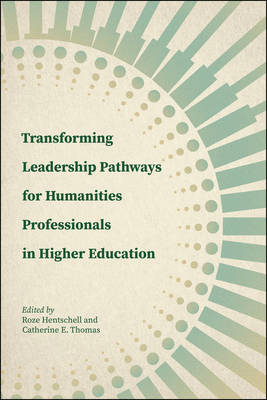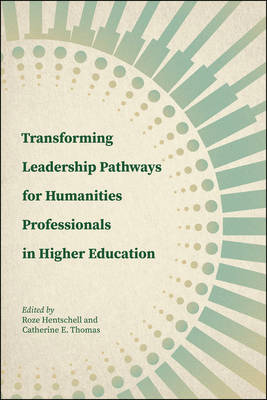
- Retrait gratuit dans votre magasin Club
- 7.000.000 titres dans notre catalogue
- Payer en toute sécurité
- Toujours un magasin près de chez vous
- Retrait gratuit dans votre magasin Club
- 7.000.0000 titres dans notre catalogue
- Payer en toute sécurité
- Toujours un magasin près de chez vous
Transforming Leadership Pathways for Humanities Professionals in Higher Education
Description
Transforming Leadership Pathways for Humanities Professionals in Higher Education includes thirteen essays from a variety of contributors investigating how humanities professionals grapple with the opportunities and challenges of leadership positions. Written by insiders sharing their lived experience, this collection provides an authentic look at the multiple roles humanities specialists play, as well as offers strategies for professional growth, sustenance, and satisfaction. The collection also considers the relationship between disciplinary areas of study, academic training, and the valuable skill sets and habits of mind that serve higher education leaders.
While Transforming Leadership Pathways emphasizes that a leadership route in higher education can be a welcome and positive professional move for many humanities scholars, the volume also acknowledges the issues that arise when faculty take on administrative positions while otherwise marginalized on campus because of faculty status, rank, or personal identity. This collection demystifies the path into higher education administration and argues that humanities scholars are uniquely qualified for such roles. Empathetic, deeply analytical, attuned to historical context, and trained in communication, teachers and scholars who hail from humanities disciplines often find themselves well-suited to the demands of complex academic leadership in today's colleges and universities.
Spécifications
Parties prenantes
- Editeur:
Contenu
- Nombre de pages :
- 300
- Langue:
- Anglais
- Collection :
Caractéristiques
- EAN:
- 9781612498256
- Date de parution :
- 15-04-23
- Format:
- Livre broché
- Format numérique:
- Trade paperback (VS)
- Dimensions :
- 140 mm x 216 mm
- Poids :
- 349 g

Les avis
Nous publions uniquement les avis qui respectent les conditions requises. Consultez nos conditions pour les avis.





